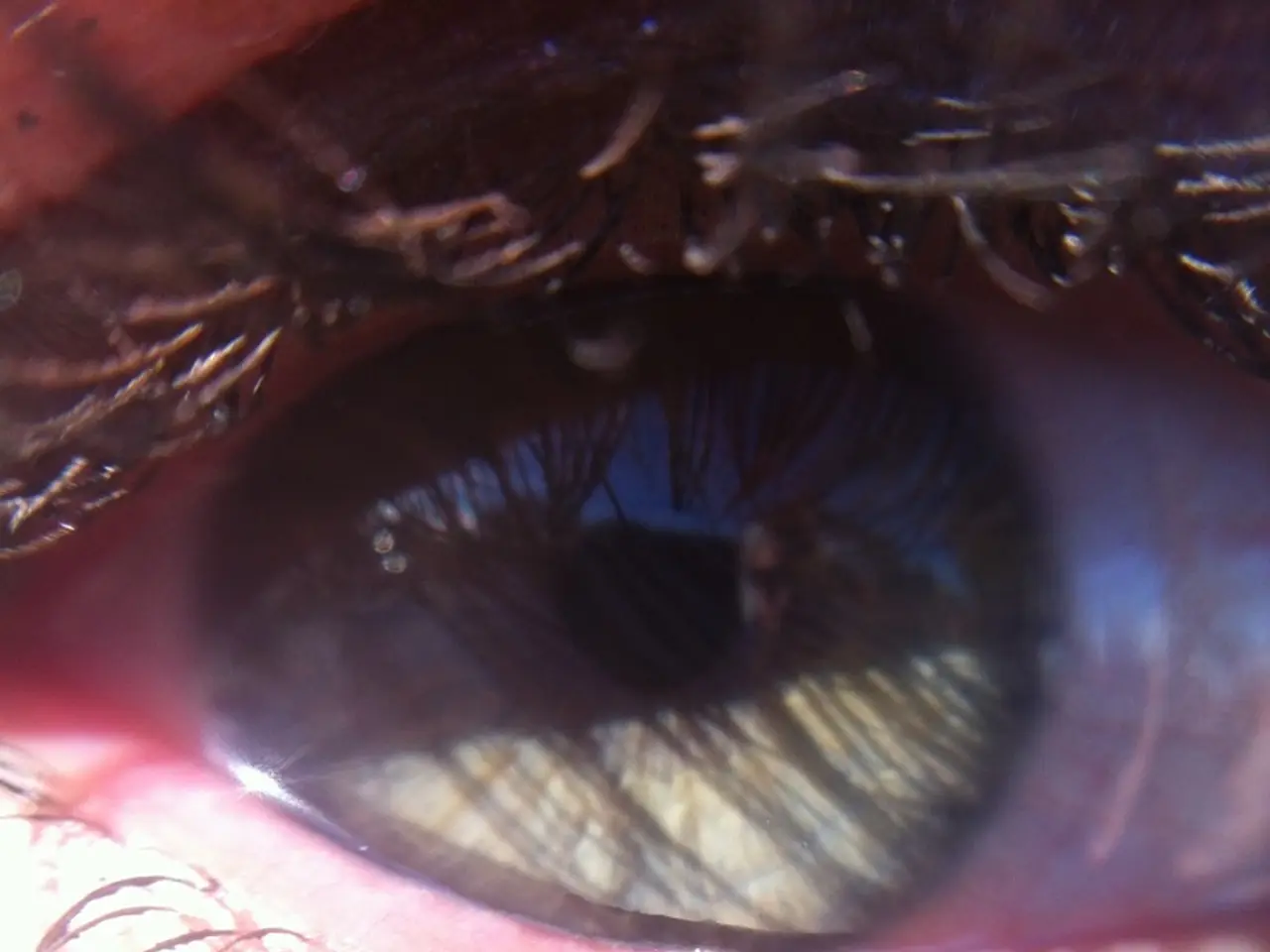The potential risks associated with applying moisturizing eye drops.
In Belarus, eye health is a significant concern, with various eye diseases affecting the population. Cataract surgery remains the most common eye operation, accounting for 58.5% of all cases, according to recent data. However, it's essential to be aware of the potential risks associated with the improper use of eye drops, a topic recently highlighted by specialist Tatiana Voronovich.
Improper use of eye drops can lead to several dangers over the long term. These include medication dependence and worsening symptoms, particularly with overuse of vasoconstrictors causing rebound redness. Corneal damage or irritation may occur due to preservatives in some drops, while steroid-containing drops can increase intraocular pressure or glaucoma risk.
Moreover, prolonged use of eye drops can mask underlying eye conditions, potentially delaying proper diagnosis and treatment. Allergic reactions can lead to chronic inflammation or damage, and in advanced cases, a cornea transplant may be necessary.
To maintain good vision, Voronovich recommends a healthy lifestyle with balanced nutrition, regular physical activity, and simple eye exercises like looking into the distance, blinking, and briefly closing the eyes. Proper computer work habits, such as working for 40 minutes then resting for 10, are also advised.
In children, refractive anomalies are the most common eye diseases, followed by strabismus and lacrimal organ diseases. Refractive anomalies are vision disorders that make it difficult to focus on images from the environment. In Belarus, these anomalies account for 66.2% of cases in children, while strabismus accounts for 17.4%.
It's crucial to remember that dry eye syndrome, a condition that can damage and thin the cornea, can occur when drops lose effectiveness due to excessive use. Voronovich warns about potential severe outcomes, including loss of vision, due to the dangers of prolonged self-medication with eye drops.
In summary, while eye drops can be beneficial for managing various eye conditions, it's essential to use them judiciously to avoid potential long-term risks. By adopting a healthy lifestyle, practicing good computer habits, and following Voronovich's recommendations, individuals can help maintain their eye health and reduce the risks associated with improper eye drop use.
Eye drops, when used improperly, can lead to several long-term dangers such as medication dependence, worsening symptoms, corneal damage or irritation, increased intraocular pressure or glaucoma risk, masking underlying eye conditions, allergic reactions leading to chronic inflammation or damage, and even the need for a cornea transplant. To maintain good eye health, it's recommended to follow a healthy lifestyle with balanced nutrition, regular physical activity, and simple eye exercises. Dry eye syndrome, a condition that can damage the cornea, can occur when drops lose effectiveness due to excessive use, and prolonged self-medication with eye drops can result in severe outcomes like vision loss.




